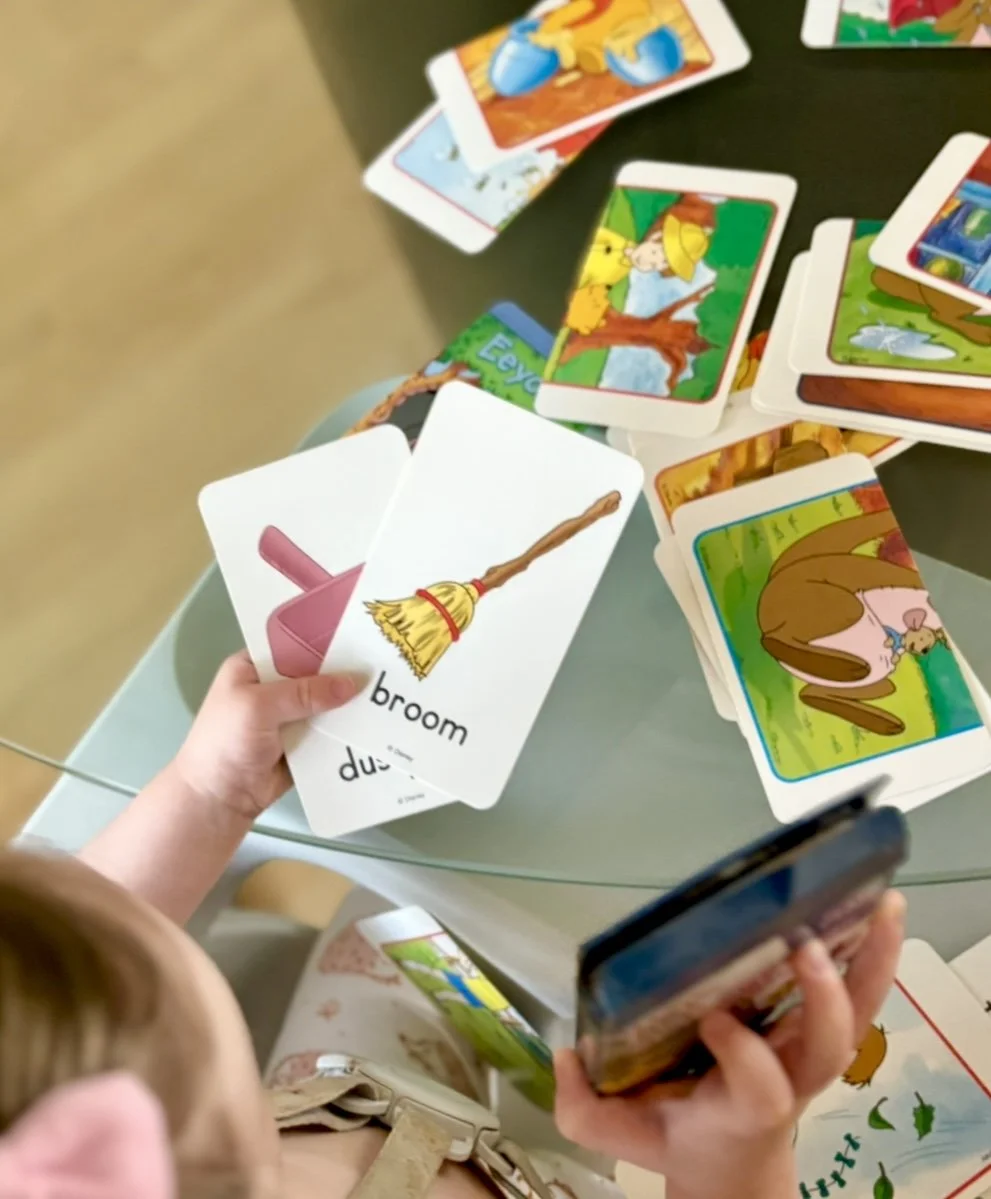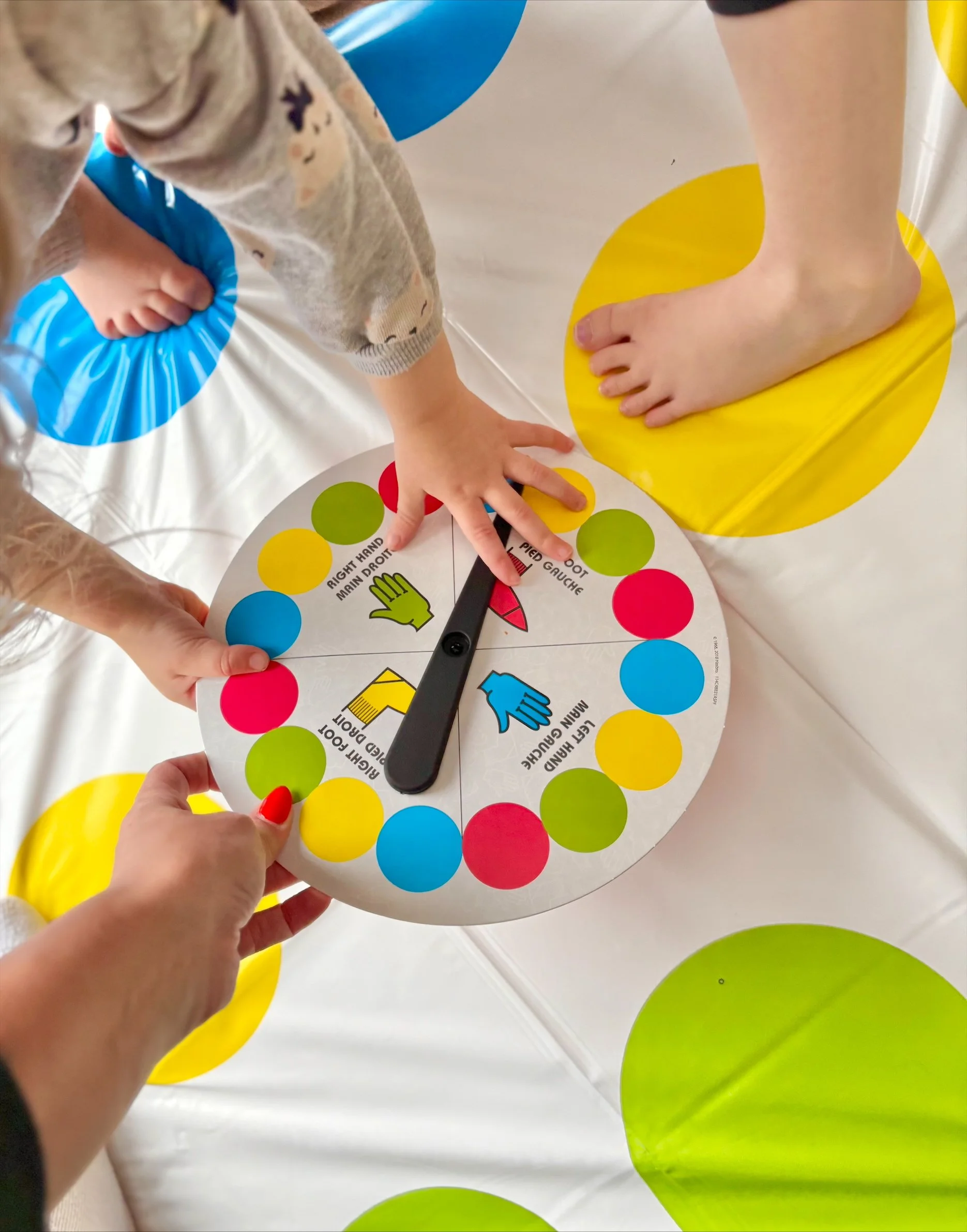3 Proven Ways to Make Playtime Feel Less Like a Chore
When I was a kid, play was priority. Recess ruled above all else and after-school activities were where we got to shine and live out our dreams of becoming rulers of kingdoms and professional athletes. Our lives revolved around play. Not chores, lessons or deadlines. There was no guilt in having fun, it was simply part of life. Somewhere along the way though, that shifted. I don’t know about you, but when I actually sit and reflect on how that has truly taken a 180 in the past 30 some-odd years - well, well, well… how the turntables….(iykyk).
It actually seems silly that even as adults, play would somehow lose its charm. These days, the way we decompress looks more like zoning out on the couch, scrolling endlessly or bingeing whatever the latest trending show is. Just last night, my husband mentioned we had no shows lined up to watch and instead of saying, “What should we do tonight?” we both immediately thought, “Well, what should we watch?”. How sad is that? Our instinct isn’t to connect, create, or engage, it’s to fill the silence with mindless noise for three to four hours until it’s time for bed.
So if we yearn to connect, to create, and to grow, why does it seem like such an afterthought to nurture those feelings as adults? And maybe the better question is, how do we get back into play?
Finding Time as a Family
Sometimes, if we’re being honest, playing with our kids can feel more like a ‘should do’ than a ‘want to do’. Okay, maybe a little more than sometimes. It often becomes a trade-off between parents: Dad builds block towers while Mom cleans up the kitchen after dinner. Then it flips the next night. It’s teamwork, sure, but it’s not together.
So, what if we actually made it a point to play as a family? Imagine putting everything else on pause for 30 minutes and diving into something that makes everyone laugh. And afterward, cleaning up together as a couple (because, teamwork).
Once your littles are old enough, family game nights are a guaranteed way to get everyone on board. Maybe it’s “Pizza Fridays” with a round of Uno or charades. Creating a ritual that everyone looks forward to all week. Something fun, consistent, and screen-free, becomes proof that play isn’t just for kids. It’s how we connect, recharge, and show them that life isn’t to be taken too seriously.
Create Friendly Competitions
That tower Dad built? Watch Mom build a bigger one. Add in a little scoreboard on the fridge and suddenly you’ve got yourself a case of family Olympics. Who doesn’t love some light-hearted competition? It doesn’t have to be about winning, it’s about getting everyone involved.
Try an arts and crafts contest where everyone draws their funniest version of Dad. Or a Play-Doh challenge to see who can sculpt the silliest masterpiece. Kids love it, and let’s face it, adults do too. A little competition keeps things lively, and it makes play feel less like another parenting duty and more like what it’s supposed to be: fun.
Adults Can Play Too
Here’s a thought: once the kiddos are asleep, why stop there? Pull out that dusty puzzle you swore you’d finish back in the covid midst of 2020 or have a game night just for the grown-ups. Pour a couple of cocktails and cue up a Mario Kart tournament or a (softly played) Jenga match on the carpet (because no one’s risking waking the baby for a tower collapse).
We all bought those puzzles, games, and craft kits when the world shut down, and then, when “real life” came back, they somehow ended up in the basement. Out of sight, out of mind. But what if we brought them back out into the open? Maybe there’s a deck of cards or a half-finished chess game calling your name.
And hey, if you want to “adult up” the fun and make it interesting with a few fun consequences for the loser… no judgment here. You do you.
Why Play Matters (Yes, Even for Grown-Ups)
Play isn’t just a break from responsibility, it’s fuel for our minds and hearts. It boosts creativity, strengthens relationships, and reminds us not to take life (or ourselves) so seriously. It lowers stress, increases resilience, and helps us reconnect with the part of ourselves that once believed recess was the best part of the day.
When we choose to play, we remind ourselves that this type of ‘fun’ isn’t something we outgrow. It’s something we forget to make time for.
So maybe tonight, instead of asking, “What should we watch?” ask, “What should we play?”
And when we do, we might just find that the tired, overworked version of ourselves loosens her shoulders, laughs a little louder, and remembers how it felt to be ‘fun’ again, even if just for a few minutes before the bedtime routine starts.
Because play was never meant to be a chore, it was mean to be the whole damn point.
What game are you dusting off tonight?



